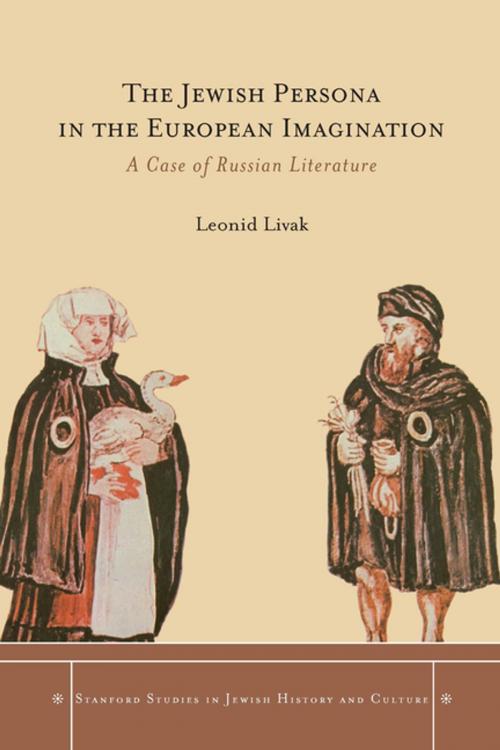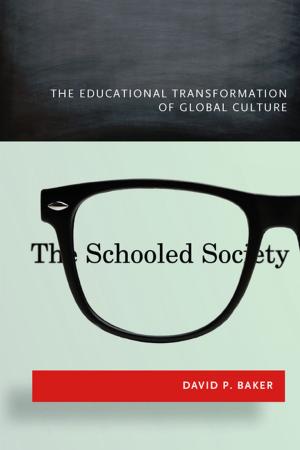The Jewish Persona in the European Imagination
A Case of Russian Literature
Fiction & Literature, Literary Theory & Criticism, Jewish, European, Russian| Author: | Leonid Livak | ISBN: | 9780804775625 |
| Publisher: | Stanford University Press | Publication: | September 10, 2010 |
| Imprint: | Stanford University Press | Language: | English |
| Author: | Leonid Livak |
| ISBN: | 9780804775625 |
| Publisher: | Stanford University Press |
| Publication: | September 10, 2010 |
| Imprint: | Stanford University Press |
| Language: | English |
This book proposes that the idea of the Jews in European cultures has little to do with actual Jews, but rather is derived from the conception of Jews as Christianity's paradigmatic Other, eternally reenacting their morally ambiguous New Testament role as the Christ-bearing and -killing chosen people of God. Through new readings of canonical Russian literary texts by Gogol, Turgenev, Chekhov, Babel, and others, the author argues that these European writers—Christian, secular, and Jewish—based their representation of Jews on the Christian exegetical tradition of anti-Judaism. Indeed, Livak disputes the classification of some Jewish writers as belonging to "Jewish literature," arguing that such an approach obscures these writers' debt to European literary traditions and their ambivalence about their Jewishness. This work seeks to move the study of Russian literature, and Russian-Jewish literature in particular, down a new path. It will stir up controversy around Christian-Jewish cultural interaction; the representation of otherness in European arts and folklore; modern Jewish experience; and Russian literature and culture.
This book proposes that the idea of the Jews in European cultures has little to do with actual Jews, but rather is derived from the conception of Jews as Christianity's paradigmatic Other, eternally reenacting their morally ambiguous New Testament role as the Christ-bearing and -killing chosen people of God. Through new readings of canonical Russian literary texts by Gogol, Turgenev, Chekhov, Babel, and others, the author argues that these European writers—Christian, secular, and Jewish—based their representation of Jews on the Christian exegetical tradition of anti-Judaism. Indeed, Livak disputes the classification of some Jewish writers as belonging to "Jewish literature," arguing that such an approach obscures these writers' debt to European literary traditions and their ambivalence about their Jewishness. This work seeks to move the study of Russian literature, and Russian-Jewish literature in particular, down a new path. It will stir up controversy around Christian-Jewish cultural interaction; the representation of otherness in European arts and folklore; modern Jewish experience; and Russian literature and culture.















